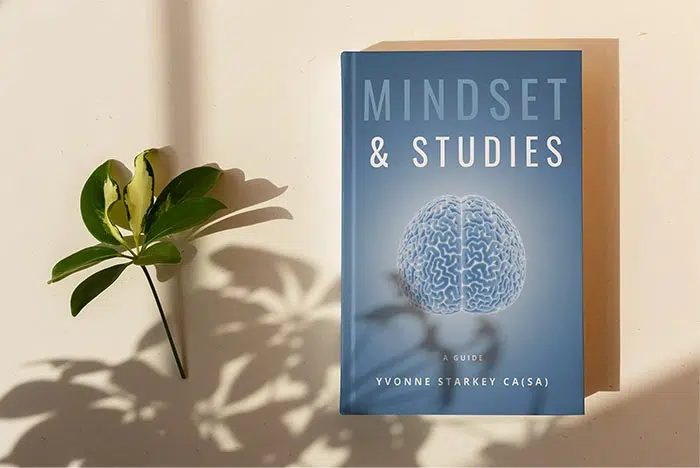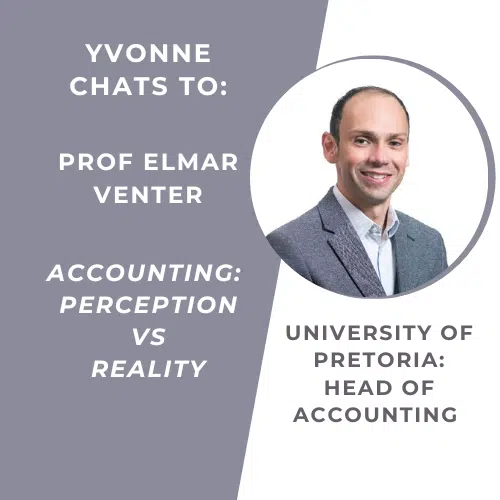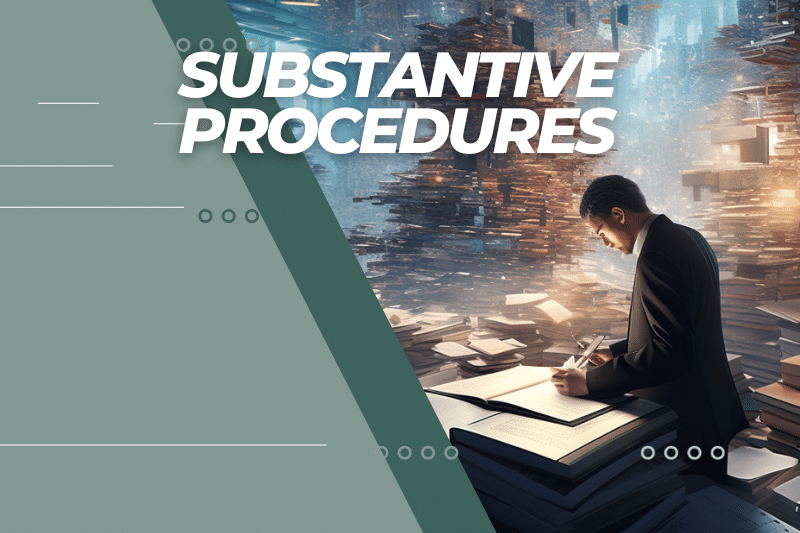The ‘ideal’ path to qualifying as a Chartered Accounting is to do your SAICA articles after your CTA / PGDA. This is because it makes sense to get all the ‘theoretical’ and academic knowledge in your head, and then apply it in practice.
There are a lot of arguments for, and against this. Some people say it’s better to learn the theory while you’re working, that it’s easier to learn the theory if you have more practical experience. I’m not going to get into that debate too much here. (Although we do discuss it a bit in the videos below where I chat to other people)
The reality for a lot of people is that they don’t actually have a choice. Whether they want to or not, they have to start working while they’re studying, so they need to sign a training contract.
Can you start SAICA articles during studies?
Yes, you can. You can sign a training contract at any point in your studies. You can sign one straight out of school, and start articles right after you matriculate.
If you start after your degree, your training contract will be for three years. If you start before your degree is finished, your training contract will be five years. If you complete your degree during your training contract, those five years can be reduced to four years.
SAICA’s regulations are not the challenge here. Your challenge will be finding a firm that will sign you on. It’s up to each firm to decide for themselves who they will employ, and at what point in their studies they’ll sign clerks on. Below, I’ll discuss some reasons that you may struggle to find a firm. (These are purely from the firm’s perspective, so you understand their point of view).
Why don’t firms seem to want you?
I created an online course for people who want to do articles / training contracts to explain what firms expect from you. All the stuff firms wish you knew before you started. VERY valuable for you.
The above course goes into all these things in a lot more detail, so I’ll be a lot shorter here:
You’re supposed to apply academic learning to practical work
If you haven’t learnt the stuff yet, someone has to go through the theory, and then tell you what to do, how to do it, and why. This takes time, and costs money. Every hour that you’re not working directly on the client’s job, you’re costing the firm money, and they can’t charge the client for your training.
You might not finish the qualification
For all the THOUSANDS of students who start the CA(SA) journey, very few of them actually qualify. The journey is very long (longer if you’re not studying full-time), and the pass rates are low. Firms don’t necessarily want to take on article clerks who may not finish their degree, CTA because they fail or don’t want to continue.
You need study leave, and you’re focussing on passing
You aren’t working, but the firm is paying you. Your mental energy is on your studies, which means they’re not getting your full attention on their client’s work
Does this mean you shouldn’t start your articles while studying?
I worked and studied at the same time (you can read my qualification journey here). I’d advise students to avoid it like the plague! It’s hard, all-consuming, stressful, exhausting and requires a constant balancing act between what you need to do for others and what you need for yourself. If you attend classes somewhere, you fight traffic after work, consume lots of caffeine to stay awake late into the night. It was very very tough.
I started my SAICA articles after I completed CTA / PGDA. Both for financial reasons, and because I wanted to get the most out of my articles by having as much technical knowledge behind me as I started. I earned more working as a bookkeeper while I was studying, than I would have doing my articles.
You need to be work fit. Do not underestimate the energy it takes to put in two ‘work shifts’ (work and studies) a day while most other people struggle with one. If you haven’t studied this way through your degree, starting in CTA / PGDA or even third year can be a nasty shock to the system. Moving from full-time student to employee is tough enough. There’s a large learning curve, getting used to your environment, people, work, duties, traffic. Then you have all the same study stress on top of that. It can definitely throw your academic year off. Keep this in mind when you’re making your choices!
Will it impact your qualification?
The quality of your career is in your hands. What you do with your experiences is up to you. Someone with all the right resources can mess up their career, while someone who struggles and makes do with what they can may rocket to success. You can only make choices based on the information and knowledge that you have.
If I did it again, I would do things differently. I’d change some of my choices, and some choices I’m proud of. Some choices, I made because that’s the only thing I could do. I can look back with more experience and knowledge than I had back then. I may have felt like I had it tougher… but my journey had a purpose, and I don’t regret that. It’s gotten me to where I am today, and I’m grateful for that. It’s really taught me that it’s up to ME to make or break my career… not my circumstances. Would I be better off now if I’d had the perfect journey then? I don’t think so. That’s really comforting!
I ask other people their opinions on this...
Vincent Motholo CA(SA) - SAICA Chairman, 2021, 2022
We chatted about Vincent’s experience (as a lecturer as well as a partner at a firm).
- From the student’s perspective
- From the firm’s perspective
- Whether doing articles will make studying easier
This was just part of our discussion, we chatted about loads of other stuff too…
Cindy Mati - BDO
Cindy is a Senior People and Culture Manager (HR, for most people!)
- From the student’s perspective
- From the firm’s perspective
- Whether doing articles will make studying easier
This was just part of our discussion, we chatted about loads of other stuff too…
Bruce Vivian CA(SA) - AFROSAI-E (Public Sector)
Bruce has worked in the public sector for years. Although he doesn’t work there now, we discussed articles at the Auditor General
This was just part of our discussion, we chatted about loads of other stuff too…
RPL & Exemptions from SAICA
For those who have prior work experience
A lot of people have prior work experience and want to know if they can reduce, or even bypass their articles.
I chatted to SAICA about their RPL and Exemption process
This was just part of our discussion, we chatted about loads of other stuff too…
Conclusion
Do all these obstacles and challenges mean that you can’t pursue this successfully? No. The more you understand about the industry, reasoning behind firms decisions and your qualification path, the better your decisions will be!
You can do it. Others have done it before you, others are doing it around you. You’re not alone. It’s up to you to make it happen!















31 Comments
Beautifully written as always, Yvonne. Its definitely a path not to be taken by the faint hearted. Am one of those that had to do both my degree and articles at a small firm. Its hard. But the advantage of small firms is that you get more exposure.
Dear Yvonne,
I completed by BCom in 1999. I attempted CTA in 2000 and failed due to many personal issues.
I started my articles with a small firm in 2001 and to my knowledge I completed my articles with them. I attempted part time CTA while working but never made to due lack of effort on my part.
Now, with many years of working experience in both Auditing and Risk Management under my belt, I am keen to give CTA another shot. I plan to do a bridging course first before going into CTA.
Question is, will SAICA still take into may account the articles that I served in 2001 – 2004? The firm never gave me anything to say I had completed my articles. Am I supposed to obtain something from the firm in writing and how do I know if they were registered at the time I served my articles? I dont want to go down the whole route only to find out that the articles I believe I served is not viewed as valid by SAICA.
Hi Sam,
Yes, you should have ‘something’ from your firm confirming that they’ve signed you off. Your articles include a whole bunch of competencies on various levels that you have to meet before they sign you off, so there has got to be some documentation (and you should have gone through review processes during your articles where your senior sat with you after each job and ‘assessed’ your levels of competencies etc). SAICA should also have documentation of this, since the training contract is lodged with SAICA as well.
You definitely want to find this out before you travel down that road!
Good luck!
Sam & Yvonne, the competency-based training contracts were only introduced in 2005. I would most definitely recomment that you contact SAICA to find out if your training contract would be acknowledged in today’s competency-based era. All the best with your path to becoming a CA(SA)! The road is long but definitely worth it!
Hello Yvonne,
Thanks for the article.
Now I certain things.
I’m a second year student at UNISA (in Bcompt Accounting).
I have god marks, many distinctions (not just in the easy subjects like Business Management and Commercial Law. I also had 80% in Auditing 2). But I took a hiatus of one year and a half because of unforeseen circumstances and I suspect that causes a problem, maybe firms wondering why I’m still in my second year since I started the degree in 2012. I’m also a foreigner, do you think that causes a problem in finding a SAICA training contract? A student told me it does. I’m legal in the country, I study here, I live here, why can’t I serve my articles here?
Thanks in advance for your feedback and we appreciate this kind of platform.
Hi Christian,
It’s good that you have great marks thus far, it will be great for you to keep them up as you progress further!
Taking a break is not the end of the world, especially if you’re open to discuss why you did it. Obviously, if people only see the ‘break’, they may question your commitment. If they understand why you did it, it may actually improve their perception of your determination 🙂 The way you communicate it on your CV will be important.
If you’re a legal foreigner, it’s less likely that this will make you ‘unattractive’ to firms.
If I was hiring for a firm (and here, I’m playing devils’ advocate to make you aware of the realities of the firms, rather than dealing with your specific situation!), I would be reluctant to hire a second year student. Yes, the fact that you’re only in second year when you started your degree in 2012 counts against you. Once you clarify your year off, it still means that you’ve taken three years (2012 to 2015 – 1!) to get from first year to second year (I don’t know how far you are into your second year!)… based on that, I’d calculate that you’re likely to finish third year in three years time, which puts you into your third year of Articles before you’ve EVEN BEGUN CTA! As a UNISA student, the statistics for passing first time (especially if you spread your degree out over so long) are under 10%… ie: 90% of students do CTA more than once… now you’re five years into Articles… (ie: ready to be signed off), while it’s unlikely that you’ve completed CTA. If you’ve been a full-time student up to this point, they are also going to wonder whether working and studying for the first time will slow down your studies further (Being ‘work-fit’ is different from studying, and putting them together when you haven’t before is tough for students)
As a firm, I want clerks who will progress fast, their academics must keep up with and push their practical abilities… there are things you learn and get in CTA and Board exams that firms want you to have done so you can add maximum value to their clients without needing constant training for stuff that you’d have if you were further academically.
There is a two-year academic progress rule as well, which says that firms CAN cancel your training contract if you don’t progress one full academic year within two years… naturally, if they’re going to apply that, then they would look at your expected completion dates, and wonder if it’s worth the risk of you falling into the academic progress ‘risk students’.
These are the things that firms are considering when they evaluate you for a training contract. How to fix it? Tough one. If you can give them evidence that you can move faster through the academic process, that will help. If you can wait a year, and make sure you’re well into your third year, then the questions of your study ‘speed’ will disappear too. Understand that the bigger / more ‘in-demand’ the firms are, the more they can dictate the entrance requirements. For these reasons, I worked in commerce as a bookkeeper while I studied, and only started Articles after CTA. I needed to work and earn money… but I was definitely a lot less attractive to firms before I had CTA!!!
Tough to hear… but you need to know both sides of the table 😉
Thanks Yvonne for your reply.
Yes it’s tough news, but it’s always better staring the truth in the eyes in order to make informed decisions.
Your feedback makes things clearer.
I think I’ll take your advice and obtain more credits before I apply for articles again. I’m almost there anyway, I’m already doing taxation 3 and will start with Accounting 3 next semester (in June).
On a lighter note, I can blame the Home Affairs if I took a break in my studies.
I think Accounting is definitely for me. The reason I took so long is I took one or two subjects per semester because that’s what I could afford.
But now that my employer is helping me pay for my studies and books I will be able to progress faster.
Sorry but just another question.
Is a position as a bookkeeper more attainable for me, just to be acquainted with the Accounting side of a business?
I think so. It’s great experience before your articles
Thanks Yvonne.
Hey,
Great article. I found this article quite late as I see the last comments are from February. However, I would really appreciate your advice. I finished a three year social science degree at UCT, I am currently studying mathematics and statistics part-time through UNISA as I am planning to apply for Financial Analysis and Portfolio Management (FAPM) honours at UCT next year. Although, I saw UNISA offers a bridging course for entrance into the CTA programme and thought that that could be an alternative option for me. What do you think my prospects are for employment after completing or during the bridging course seeing as though I did not complete a BCom degree. Any potential for me to get a TOPP training contract? Please let me know what your thoughts are! Thanks in advance.
Good Day Yvonne
Thank you sure much for your informative website.
I have graduated with a Bcompt from Unisa earlier this year. I have been granted admission to do my CTA at Unisa next year.
I would really like to start with my training contract while doing my CTA. As I am not too keen on waiting.
Kindly advise if you know any firms that take Will take me on while I am still doing my CTA. I am based in KZN.
I will appreciate any advice.
Thanking you in advance
Alariece
This has really helped me make my decision I am very grateful.
Hi Yvonne,
Quick question, in which I would highly appreciate your feedback. I served 3 years as a clerk at firm A, I then moved over to firm B in which I was promised 3 years RPL will be recognized. In May 2017 I sign off. Today the partner informed me that they will no longer accept my 3 Years RPL. Apart from this act being unethical and unprofessional, is there anything I can do to ensure I sign off in May 2017 as promised?
I have met my core hours and all competencies.
Thanks in advance
Hi Neil…
Shame, this sounds pretty stressful. You don’t have too much time left, so the sooner you try sort this out, the better. I’m not 100% sure of how to solve this, but here are my ideas:
– Your training contract is registered with SAICA. As much as your firm is responsible for assessing you, SAICA is also a part of this conversation
– I would contact SAICA, and discuss the matter with them. Your firm is registered with them as a training centre, so their actions should be in line with SAICA’s expectations and requirements. At the very least, I’m hoping they can give you some guidance and advice about further steps you can take to sort this out
– You should have documentation of your articles with Firm A. Your assessments and competency levels achieved at that firm is what will be taken into account in the RPL as well. It’s not so much the ‘years’ as it is the competencies you need to fulfill before you get signed off.
– If you look at your previous assessments of competencies, as well as the current ones from Firm B, will you be able to be signed off at the right levels by May? (I believe this will be an important component of the discussion as well)
– It’s an unfortunate thing to have to do, but do you have any written documentation from your firm regarding their acceptance / treatment of your RPL? This will also be valuable in your discussion.
Some other stuff to consider in this tough situation:
– You’re angry… and understandably so. You’re nervous about the outcome and probably feeling a little desperate and somewhat betrayed… be very careful how this comes across!!!
– People are generally likely to offer more resistance, or close down, when they’re feeling ‘attacked’ or ‘accused’… especially if you’re using words like “unethical…”. As your partners, they’re used to being right, and will certainly not approve of a clerk making allegations or ‘attacking’ them.
– This means you need to be very careful about the words you choose when discussing this with anyone. Remember that SAICA will have a lot of complaints from clerks who feel like they’re being mistreated too, so whether you’re perfectly justified or not… be careful how you come across, because an argumentative approach is unlikely to win you support.
– I KNOW this is really hard to do when you’re feeling the way you do, but keep the objective in mind rather than your emotions about it. If getting angry with them is not going to achieve your objective, then there’s no point in showing it. This is a skill that true professionals have to learn (often the hard way!)… to separate your emotions from the discussion at hand, so that it doesn’t cloud the issue and affect the outcome.
– Be careful about how many people (especially in your firm), that you discuss this with. It’s unlikely that your fellow clerks can assist you (unless you KNOW they can), and it makes you look bad if you’re bad-mouthing the firm (even if you’re right!!) Also… word of your discontent and complaining will probably reach the very people you’re trying to get a result from… and no-one likes being bad-mouthed.
The more information, advice and facts you have at your disposal, the better. Again, I think SAICA can be helpful here.
I know you’re in a tough position, and I know it’s nasty to deal with. I’m sorry… and I seriously hope you get this sorted out! I’m holding thumbs for you!
Hi Yvonne,
I am a third year B Acc student. I would like to do my articles next year while doing my CTA’s. I would like to know your opinion on whether it would be a good idea to do that.
Thank you in advance.
Regards
Hi there…
Beyond the info in the article I’ve written, I can’t give much advice! It’s totally your decision. No-one else can make that call. Unlike your studies, there is no right or wrong answer… you have to make the best of the decisions you make. Students often ask me for advice specific to them, because they want approval for their decisions, or more assurance that they’re making the right choice… I can’t do that. No one can! (And if they say they can… they’re lying. No one should make those decisions for someone else. Everyone’s experiences are different. What’s right for one is not always right for another!)
Consider the stuff I’ve put in the article, how it impacts you, what your situation is… research it, think about it, talk to others who’ve made the same and different decisions… but ultimately, you’re the only one who can answer that question!
Good luck! It’s a big decision! 🙂 I wish you well!
Hi Yvonne.
Trust that you are well. I have been contemplating looking into going into the accounting field at some point this year. I am planning to got through full-time studying whilst assisting my dad in his business. I am 31 years old and in your opinion; would this be a disadvantage for me in terms of going the CA(SA) route; considering I may be in my forties should I eventually qualify. Your input would be greatly appreciated.
Hi Ash,
Age is only an issue if you allow it to be. If you compare it to your average retirement age (approx 60 – 65)… If you qualify at 40… you still have a good 20 years of your career ahead of you! Have you looked at all the success stories of people who started their businesses or careers in their 40’s, 50’s, even 60’s!? Don’t let age be your decision-driver.
If you’ve never been in the field, of course you want to research it properly, make sure it’s really for you, really something you can be passionate about it… because, make no mistake, it’s a nasty route. If you haven’t studied for some time, don’t underestimate how tough it is to get back into. Family responsibilities… consider this too… squeezing studies into family life is not easy and you don’t want to damage that. Especially when you get to CTA, your time is absolutely not your own.
You’re looking at least at 4-5 years of studies, if all goes well.
Older students also have to consider articles. If you’re going to study full time, you’ll have to do articles in about 6 years… you need to be able to take the salary knock (obviously, it doesn’t pay super-well!), again, if you have a family, you need to consider the possibility of that, and how you’ll manage that. If you’ve read my journey, you’ll also recognise the the ‘weirdness’ that comes with doing articles when you’re older. It’s tough to go back to a learnership with younger people and be a ‘first year’ when you have life experience, work experience, etc… it’s challenging… but absolutely possible 🙂 The more you know what to expect, the better!
Firms do appreciate having older clerks, because of their life experience and work experiences. It’s great to have a first year who knows how to interact with clients, knows systems, business processes etc… so don’t worry too much about that 🙂
The first year of your degree is pretty ‘general’, so it allows you to continue on the CA route, or, another BCom, if you find something else more attractive once you get into it… so that helps to expose you to a little more as well.
It’s great to have the options open to you… so good luck with your future and career choices 🙂
Hi Yvonne
Thank you, I really appreciate your article. I would also appreciate your advice on my current situation if possible?
I have graduated with Honours in Finance non-CA (Business Science) from UCT in 2016, and am now set on the CA (SA) path. However, I have at least two years left (beginning next year) before I will be able to write the ITC. One year Accounting 3, Tax 3, etc. The next year CTA.
I would like to know if I was to start articles in 2018 (the first year of the two year studies), would I be able to write the ITC in January 2020 and the APC in November 2020? Therefore still complete articles within three years?
This is of course taking into account the immense pressures of CTA and the near impossible total workload. And factoring in a firm that has hypothetically signed me for this.
In conclusion, I would prefer to do everything in three years, than a total of five. Do you believe this is technically possible?
Kind Regards
thank you Yvonne for the awesome insight, it is really amazing, for most of all are only equipped with generally knowledge to our career path which in turn , it is quite vague,
thank you once mo
Hi Yvone,
thank you for all the information however I am very keep in doing CTA however I don’t have Bcom degree I have a BA degree but I do have accounting background, so can I still take that path or I will have to do bcom degree first?
I am currently registered with Unisa for a BCompt Degree and hoping to complete by the end of December 2018 but
I would like to know if I can apply and qualify for a Traineeship while I am working and studying part time. I have been given subject exemptions but I am currently struggling to complete my studies due to work related issues and I would like to resign and continue with an Accounting Firm to complete my Articles regardless of the salary that I might earn which might be lower than the current one.
Are there any chances for me to qualify for a Training Contract ?
Hi there…
Yeah, I do mention in my discussion that it’s not ‘first prize’… and that it’s not ideal… that doesn’t mean that it’s not possible. I would imagine that the medium / smaller firms are more likely to be possibilities… your other working experience helps you as well. Firms get more ‘value’ from your work when you’ve got working experience, since they don’t have to start teaching you EVERYTHING from scratch. Your transport (you need to be able to get to clients all the time), and communication skills (they have to trust that you can interact with their clients well on your own!) are also really important.
It is possible, and there are a LOT of students who are doing it. My article is aimed at getting students to understand why firms aren’t super-excited about undergrads… it helps you to know what the firms are thinking when they look at your application 🙂 Don’t let any of this stop you 🙂 That’s not my intention!
Good luck! I hope it all works out well for you!
Hi Yvonne
I wonder if you can help me to understand this process. My step daughter studied BCom accounting and passed in the first 3 years and got her degree. However, her marks were not high enough to qualify for her to study Honours so re redid the last year and qualified to do honours. She did not pass the first year attempt and then started to do her articles while studying. However, this year is her third attempt at honours and I would like to understand what happens if she does not pass this year. I believe that you may only attempt it three times. Please advise what are the possible ways forward as I dont really understand this process. If she does not pass, does it mean that she can never attempt honours again? or ever become a CA? I would really appreciate your advice.
Kind regards
Charmaine
Hi there,
I’m sorry to hear that her journey has been so tough.
If she can’t attempt CTA again, she will need to re-do the previous level before she can attempt it again. I think if she’s in Level 2, she’ll need to do CTA Level 1 again. If she’s in Level 1, she will need to re-do third year before they’ll allow her to try CTA again.
It’s quite the journey.. but I do know students who’ve done it, and passed.
I would suggest that she gets more tuition support, or different support. She needs someone to help her assess what she’s struggling with and how to change it.
I hope this helps.
Hey Yvonne.
Thank you so much for this site. It is really helpful for all aspiring CAs! Well. It definitely helped me make up my mind between General Accounting and Chartered Accounting.
I recently completed my BCom General Accounting Extended Degree at NMU/NMMU. I really want to do CTA, but I am going to have to do UNISA’s Bridging Course first and then their 1 year CTA program.
The problem is that I am already 23. So by the time I finish these extra 2 years of studying, I will be 25. And it is stressing the heck out of me that no firm is going to want to hire me at that age without any prior experience in the field.
I am really lost regarding my options at the moment. I believe you 110% when you say that working and studying is incredibly difficult.
I have been blessed with the option of finishing my studies and then starting articles at 25. But will my age be a factor to firms?
Thank you so much and kind regards.
Hi Yvonne
I have just completed my BCOMPT degree with UNISA and graduating now in October. thank you for writing this article as it opens my eyes to many challenges that one could face while doing articles while studying. I Have almost 10 yrs overall working experience of which 5 yrs is in finance department as an AP clerk.
I was thinking of doing articles next year while I do CTA1 but I can now see it will put lots of pressure on me. it is already challenging being a wife, a mother and full time employee.
Hi there… sorry I was quiet, we were travelling and my postgrad students were getting REALLY close to exams, so they take up more mental energy and time.
You’re in the space that a lot of my students are, and it’s a very real challenge. If we’re taking on a new, big challenge, which postgrad DEFINITELY is, I really recommend keeping your life as MUCH the same as possible. Don’t underestimate the mental and physical energy it costs to deal with new expectations, new projects, new people, and somehow, because it’s ARTICLES, which is a required component of that qualification, it feels just THAT much more important than ‘other’ jobs. You feel a strange sense of wanting to focus just that much more on learning EVERYTHING.
Postgrad is super-challenging, takes an incredible amount of energy, emotions and time. If you know what your life looks like now, your time obligations, it means that you’re better able to plan your life and daily schedule. You ‘know’ what’s expected of you on a daily basis, and can adjust for your studies. Trying to adjust TWO different new obligations… MUCH more challenging. Not to mention the overtime. I really don’t care what firm, what promises, what ‘support’ you’re promised or given or whatever… there WILL be overtime that will affect your study schedule. The idea is that “if you did it right the first time, you wouldn’t need overtime”… but that’s super-unreasonable given a NEW job, expectations, tight deadlines and the reality of challenging audit clients and the stuff that always happens in every job to make things not quite work properly! Your firm may have EVERY intention of supporting you with your studies, but not at the expense of their audit clients’ deadlines.
If you’re going to do CTA1, perhaps leave the articles decision for CTA2… during CTA1, you can get a grip on what your life looks like, and can then decide if you want to start articles with CTA2. That way, you have a much better idea of what it will take from you 🙂
Hi there…I hold a Internal Auditing diploma and would like to do my articles. But I do not even know where to start concerning my articles. I plan to do my articles while doing my Advanced diploma next year. Please advise me and assist me on where to apply for my articles.
Hi Amahle,
It can be pretty tricky to navigate your way through this. To start with, you need to clarify what qualification you’re working towards. Your studying thus far has focussed on Internal Auditing, so it feels like your natural choice would be to qualify as a Certified Internal Auditor through IIASA https://www.iiasa.org.za/
If you’re looking to transition your qualification focus to SAICA, you may need to reconsider your study choices a little, and get some advice on what you may need to bridge. It’s a little less likely that you’ll get SAICA articles if you’re not on the CA route… or perhaps you can look into the AGA qual from SAICA.
My best advice is to contact the institutes themselves, and educational institutes, to get a better idea of what the requirements are, in order to make sure you’re working towards the right goal for yourself. You can get lists of training offices on SAICA’s website and apply to them, look at their firms online and on LinkedIn, contact their HR and graduate recruitment departments. It’s a tough one, because while it might seem ‘smoothe’ and easy from the outside, unless you’re in a university where the firms literally come to you… you’re going to have to do a lot more legwork to find your spot.
You have some research to do in terms of your studying, and your qualification 🙂